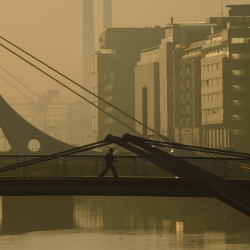To provide the best experiences, we use technologies like cookies to store and/or access device information. Consenting to these technologies will allow us to process data such as browsing behaviour or unique IDs on this site. Not consenting or withdrawing consent, may adversely affect certain features and functions.
The technical storage or access is strictly necessary for the legitimate purpose of enabling the use of a specific service explicitly requested by the subscriber or user, or for the sole purpose of carrying out the transmission of a communication over an electronic communications network.
The technical storage or access is necessary for the legitimate purpose of storing preferences that are not requested by the subscriber or user.
The technical storage or access that is used exclusively for statistical purposes.
The technical storage or access that is used exclusively for anonymous statistical purposes. Without a subpoena, voluntary compliance on the part of your Internet Service Provider, or additional records from a third party, information stored or retrieved for this purpose alone cannot usually be used to identify you.
The technical storage or access is required to create user profiles to send advertising, or to track the user on a website or across several websites for similar marketing purposes.
 The Government’s plan to transform the UK into a science and technology superpower will fail to boost living standards unless it’s linked to a broader industrial strategy aimed at raising productivity across all sectors of the economy. This is the central conclusion of a new CIPD discussion paper, An industrial strategy for the everyday economy, which says a bolder vision for economic growth, looking across all sectors and areas of the economy, is needed considering the multiple challenges facing the UK. (more…)
The Government’s plan to transform the UK into a science and technology superpower will fail to boost living standards unless it’s linked to a broader industrial strategy aimed at raising productivity across all sectors of the economy. This is the central conclusion of a new CIPD discussion paper, An industrial strategy for the everyday economy, which says a bolder vision for economic growth, looking across all sectors and areas of the economy, is needed considering the multiple challenges facing the UK. (more…)




































June 22, 2023
Businesses need to take real action to create a more sustainable workplace
by Ashley Lawrence • Comment, Environment, Workplace design